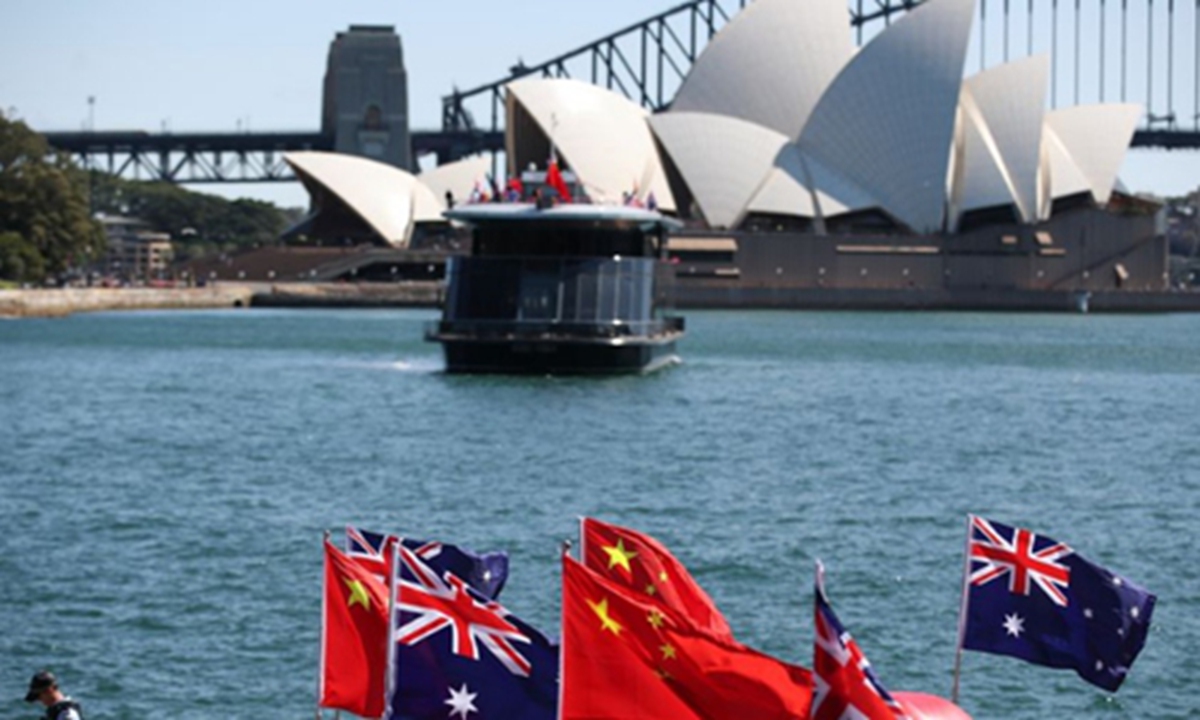Australia’s Indo-Pacific push misses economic realities
Source: Global Times Published: 2020/8/5 21:02:21

File photo
Australian Prime Minister Scott Morrison said Wednesday that establishing an Indo-Pacific alliance with like-minded nations is a critical priority. Putting the Indo-Pacific alliance at such a height is beyond the general expectation and shows that Australian government has no sense of priorities.This is because the Morrison government clearly should have much more important things to care about domestically at present - for instance, how to contain the continuing coronavirus surge as the southern hemisphere enters into winter, and how to rescue businesses hit hard by the pandemic.
A simple glance at the local news is already enough to tell the situation has been deteriorating fast and requires government attention. Australia's worst-hit state of Victoria on Wednesday reported 15 COVID-19 deaths, marking the country's deadliest day of the pandemic to date. On the same day, aviation company Virgin Australia announced 3,000 job cuts while indicating that there could be more job losses in the future.
Unfortunately, the past few months only saw the Australian government highly active in pushing for a regional alliance to balance so-called "China coercion." Last month, Australia said it would boost defense spending by 40 percent over the next 10 years. All these moves are baffling enough for a country that is under no military threat from the outside world, suggesting that the government is now obsessed with the US-backed Indo-Pacific strategy.
But the question is whether India, which shows enhanced defense cooperation with Australia, could be so easily lured to back a strategy that may cost its diplomatic flexibility while delivering little substantial interests both politically and economically. It is no secret that the Indian government has long adopted a non-alignment policy, so despite the anti-China sentiment in the country, it is still unlikely the country will abandon these long-term principles.
Prioritizing an Indo-Pacific alliance also does not make economic sense for the Morrison government. The economic interdependence between India and Australia can by no means be comparable to China-Australia or China-India economic ties.
It is, to a certain extent, disturbing to see that the Australian government is treating everything from the geopolitical perspective, which does not bode well for the government's balanced decision-making. Some politicians claimed that Australia should not trade their values for economic benefits, but that should not be a reason for the government to consider its foreign policy and diplomatic relations based only on military and political factors, with no regard to economic factors at all.
At a time when the political world is in turmoil, politicians lacking in careful economic calculations may make geopolitical decisions at their will, but it is their national economic power that will shoulder the real damage of political ignorance.
Posted in: GT VOICE